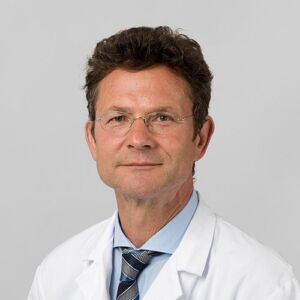Cancer of unknown origin is difficult to treat because the therapy cannot be targeted. The global CUPISCO study involving the Institute of Pathology and Molecular Pathology at the USZ has now shown that patients with cancer of unknown origin survive longer if molecular genetic analyses support the choice of treatment.
Cancer cannot always be classified precisely. In two to five percent of all cancers, it is not possible to identify the origin of the cancer, for example in a specific organ. Experts then speak of a “cancer of unknown primary” (CUP). This form of cancer is difficult to treat in most cases because no primary disease can be identified and it manifests itself in very different forms. Accordingly, the prognosis for patients with CUP is poor, with an average survival time of less than one year after diagnosis.
Treatment progress through customized therapy
Massive progress has been made in recent years with personalized therapies for some cancers. For example, molecular genetic analysis of tumor tissue can be used to identify genetic changes in it; this information is then used to select a “tailor-made” therapy for individual patients with certain genetic changes. In many cases, these prove to be highly effective. Patients with cancer of unknown origin have not yet been able to benefit from these advances. However, in the global CUPISCO study, researchers have now investigated whether these patients can also be treated better if a molecular genetic analysis is also included in the choice of treatment.
Worldwide study – 1505 patients were examined at the USZ alone
The prospective study led by Roche included 159 health centers in 34 countries from 2018 to 2022. The Institute of Pathology and Molecular Pathology at the University Hospital Zurich has extensive experience with molecular genetic analyses and was the reference pathology in the CUPISCO study for several years. The patient samples were histologically examined at the USZ in a second opinion, followed by a broad molecular analysis with over 300 genes after their inclusion in the study. An international tumor board discussed the results and made treatment recommendations. A total of 1505 patients were second assessed by the reference pathology department at the USZ, 636 of whom were included in the Phase II study and underwent further molecular testing at the USZ.
Significantly longer survival in diagnostics with molecular genetic analysis
The results of the CUPISCO study, recently published in Lancet, show that the group of patients who received targeted therapy following this comprehensive molecular testing of tumor tissue and blood samples from patients lived significantly longer than the comparison group who received only conventional chemotherapy. For the first time, an international study was able to prove that the interdisciplinary approach of personalized medicine with genetic tests in pathology also leads to better treatment outcomes for patients with CUP. For Holger Moch, Director of the Institute of Pathology and Molecular Pathology at the USZ, the results are encouraging and groundbreaking: “This result is particularly important, as there has been no progress in the treatment of this disease for patients with CUP in recent decades.” Chantal Pauli, senior physician at the Institute of Pathology and Molecular Pathology and reference pathologist for the CUPISCO study, adds: “There has never been a study design like this before. Through our experience in this study, new diagnostic guidelines have been defined, which enable new therapies for patients.
Publication:
Krämer, Alwin et al, Molecularly guided therapy versus chemotherapy after disease control in unfavourable cancer of unknown primary (CUPISCO): an open-label, randomized, phase 2 study. The Lancet, Volume 404, Issue 10452, 527-539.
DOI: 10.1016/S0140-6736(24)00814-6




